liver support
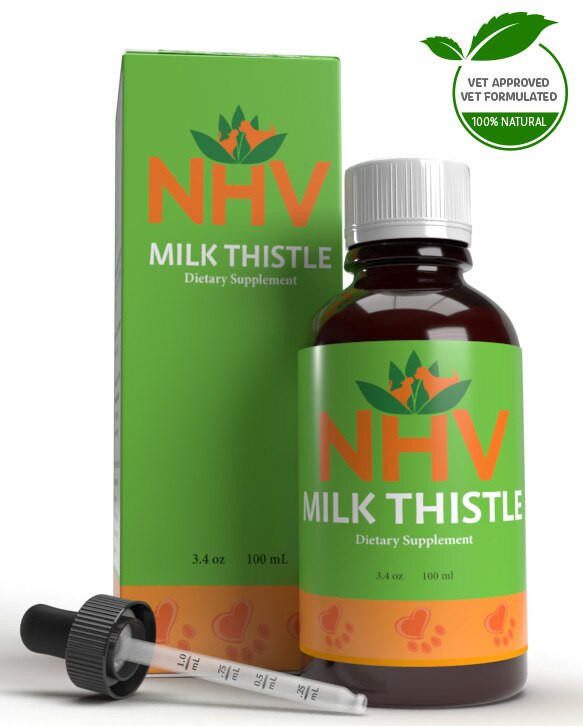
free shipping over $100 (USA & Canada)
1-877-937-4372 the pet expert hotline
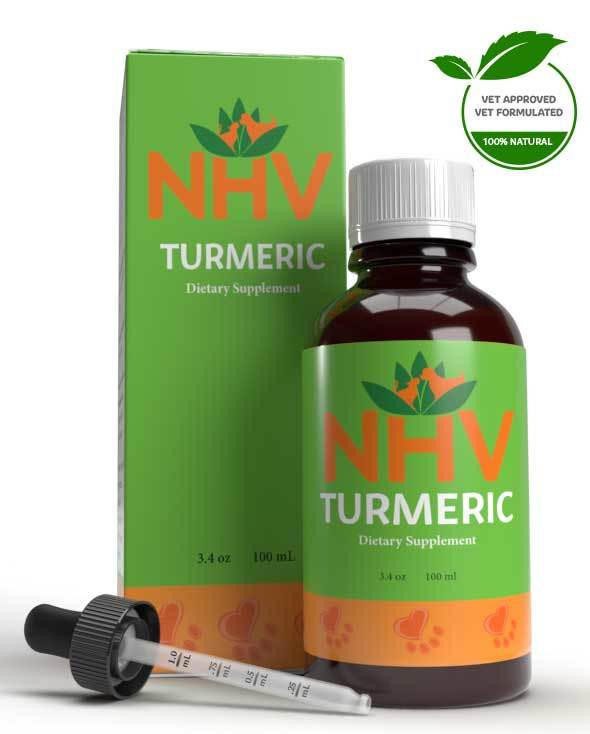
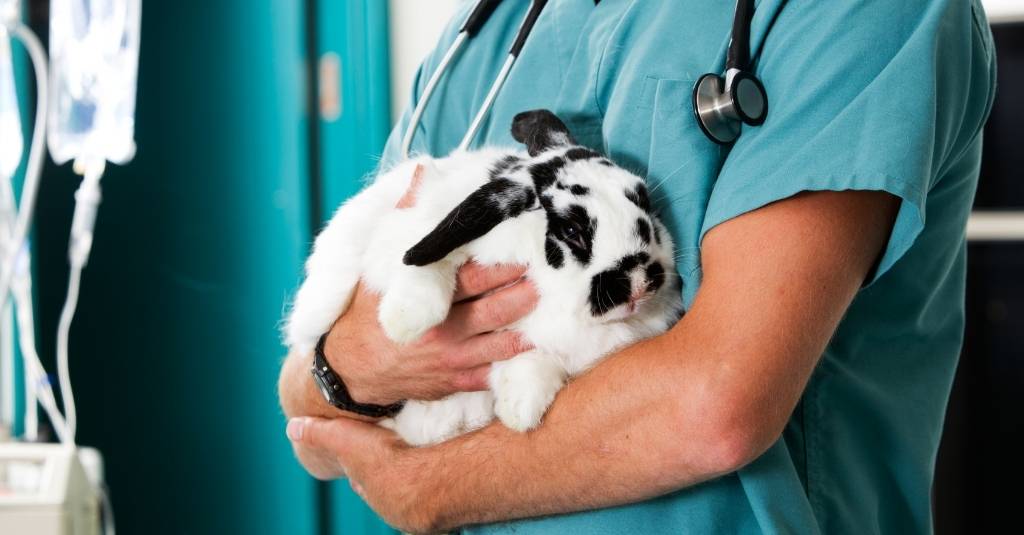
We have lots of room in our hearts for all kinds of pets, cats, dogs, ducks, guinea pigs, etc. Lately, we have been getting lots of questions about RABBITS and something that many of our #NHVpets family don’t know is that our supplements are also good for our bunny buddies! We put together a list of the 5 common diseases in rabbits and how to treat them to help these cuties’ pawrents all over the world.
Rabbits are extremely concerned with hygiene, just like cats. Both use the tongue to clean their hair and spend most of the day in this task. Due to their habitual cleaning, parents to a rodent or feline generally don’t need to worry about bathing their furkiddo. However, there is a problem that arises with constant self-grooming: the hairballs.
During the grooming session, several hairs stick together on the rabbit’s tongue, which will stop in the stomach.
During the grooming session, several hairs stick together on the rabbit’s tongue. These hairs will stop in the stomach and, in large quantities, form the famous hairballs. To eliminate them, cats can vomit, but the rabbits cannot expel that way. Such impairment can lead the ingested hairballs to become a major health problem.
Emergency surgery, if the gastrointestinal tract is obstructed.
The best way to avoid hairballs – and dental problems – is by offering foods with sufficient fiber. Limit the amount of food and always leave fresh hay available.
Pineapple may also help to treat the accumulation of hairs. The fruit has an enzyme, called bromelain, which helps to digest the hair, facilitating their passage through the digestive system. Most rabbits do not like to eat pineapple because of the smell, so they need to be administered directly in the mouth. A syringe or pet-friendly herbal supplements can solve this obstacle.
Lastly, regular brushing is important to prevent the buildup of hair in the body – especially longhaired species. When brushing, all dead hair will come out, decreasing the likelihood of ingestion during rabbit hygiene. Also, consider trimming your pet — if the hair is too long, it will help a lot.
NHV Maris can be very helpful for your rabbit. It is an herbal formula for constipation that promotes bowel movement and soft stools, relieves congestion and inflammation, and helps support good colon and gastrointestinal health.
NHV Hairb-Ez can also be really helpful for eliminating small hairballs. Hairb-Ez contains herbs that have natural properties that help to dissolve ingested hairballs, encourage healthy bowel movements, help reduce constipation, discomfort, bloating, and discomfort.
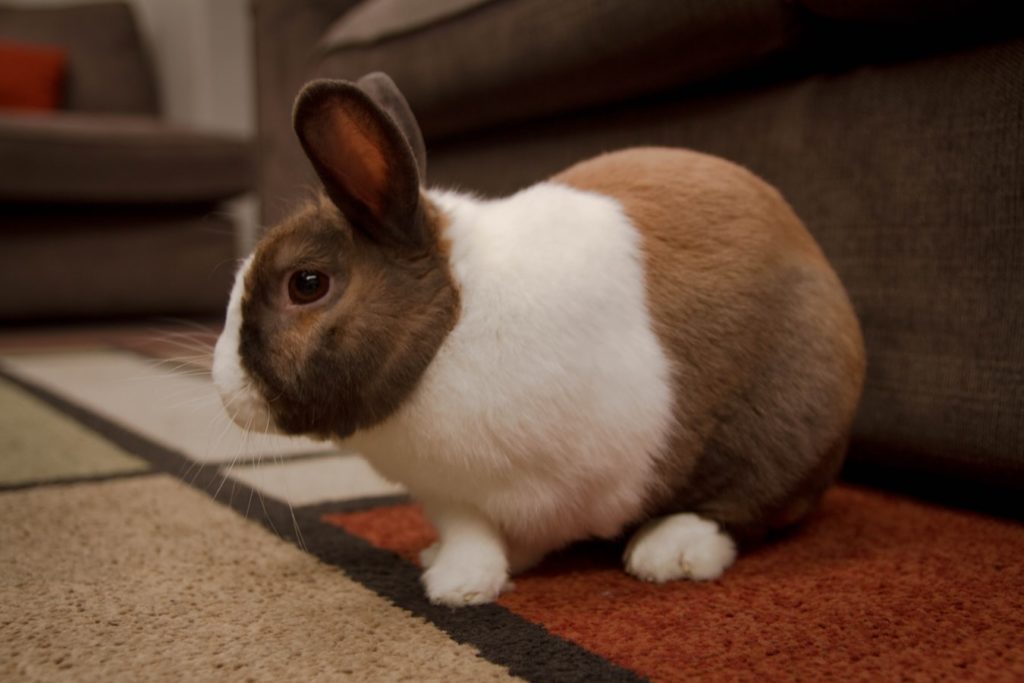
Although it sounds cute, the snuffles are a common bacterial respiratory disease in rabbits.
Many infected rabbits will initially develop a watery nasal discharge followed by sneezing and then a thick, whitish to yellowish nasal discharge. These infected rabbits will often make a loud snuffling or snoring sound due to the fluid and mucous in their nasal tracts. Because rabbits groom their faces with their front paws, infected rabbits will often have discharge and mats on the inside of their forepaws. The disease can also travel to their eyes causing conjunctivitis and a resulting discharge, or it may travel to their ears causing ear infections.
Diagnosis is based on the symptoms and sensitivity tests to discover which bacterium is causing the problem.
A common treatment is an antibiotic therapy. If the Snuffles are being caused by problems with the teeth, such as abscesses found because of an infection, the problematic teeth may need to be removed.
The best way of preventing your rabbit from snuffles is to ensure that its teeth are healthy and this may require changes to your rabbit’s diet — they need a high fiber diet. It is also important to make sure that the rabbit is in a well-ventilated area and their cage is regularly cleaned out to prevent the build-up of fumes from urine.
NHV Matricalm helps reduce stress and anxiety in pets. Stress can make the Snuffles worse and Matricalm may help rabbits to breathe better while also having a calming effect. While many rabbits respond best to vet-prescribed antibiotics, others respond very well to the components that Matricalm has.
NHV Resp-Aid supports respiratory health and function. It helps pets to breathe easier, fight respiratory infections, and relieve shortness of breath. Resp-Aid contains herbs that naturally have anti-inflammatory and antibiotic properties.
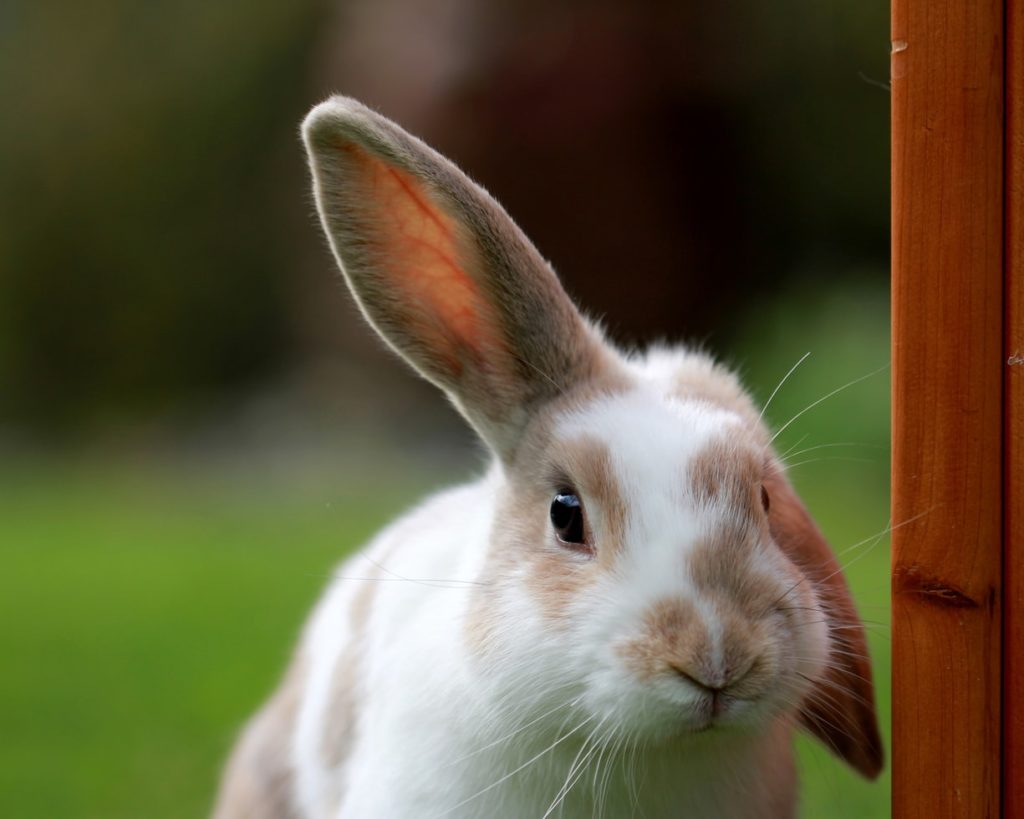
Thymoma and thymic lymphoma are tumors that arise from the thymus, an organ that is part of the immune system and is found in the cranial mediastinum (a portion of the chest cavity). They may occur alone and remain local, or they can affect many different organs of the rabbit’s body as cancer metastasizes, spreading to other tissue in the body.
NHV ES-Clear is our recommended supplement for pets fighting cancer. The herbs in this blend may help reduce tumor growth, purity blood, and help detoxify vital organs. It helps to support the immune system and improve quality of life, vitality, and energy levels.
NHV Natures Immuno is a blend of mushrooms known for their extensive health benefits. Together they help to support the immune system and help fight against viral infections. Natures Immuno can be beneficial as anti-cancer and anti-tumor support.
NHV BK-Detox supports the immune system and is a detoxifier for the vital organs and the blood. BK-Detox helps to improve and protect the immune system, especially for pets with compromised immune systems.
NHV Turmeric has anti-inflammatory and nutritive properties that increase overall vitality while helping to support a variety of health conditions such as cancer, heart issues, and arthritis.
NHV PetOmega 3 is a fish oil to enhance overall health and wellbeing. Omega-3 fatty acids are helpful in supporting cardiac health, coat conditions, joints, kidneys, and overall cancer support.
NHV Resp-Aid is an anti-inflammatory, antibiotic, and healing formulation that helps with upper respiratory congestion, helps fight infection and relieves shortness of breath.
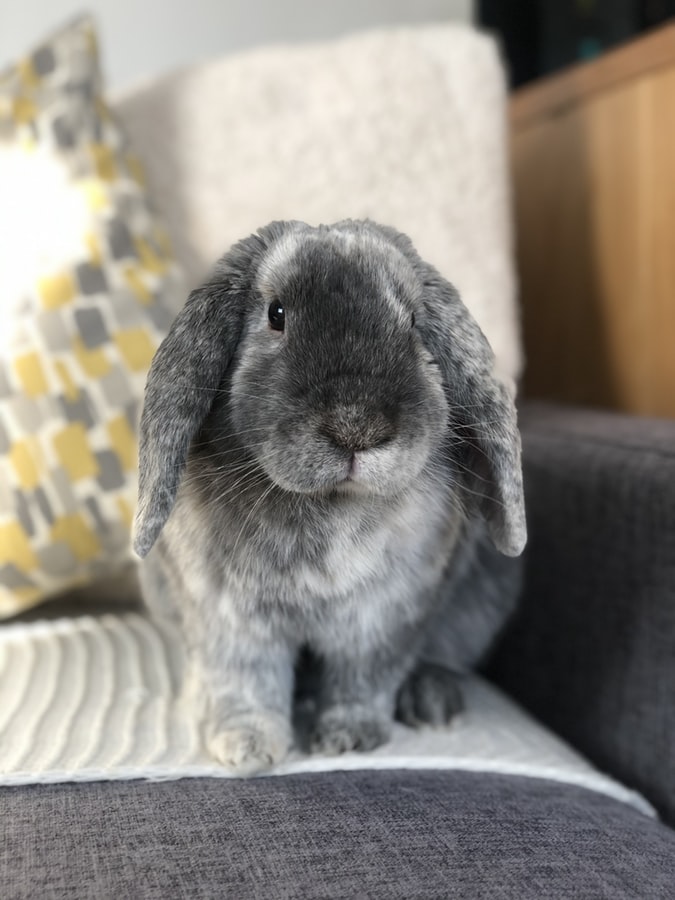
Rabbits can also suffer from renal problems. This causes them to produce less urine and is infrequently due to cases of dehydration.
Kidneys have several important functions; they get rid of the waste products that are created when food is transformed into energy. They also maintain the correct balance of water and electrolytes (salts) within the body cells. Another key function is the production of hormones called erythropoietin and renin, which are important in maintaining healthy blood pressure, producing blood cells, and absorbing salt correctly. Finally, the urinary system processes vitamin D which is essential for absorbing calcium and promote bone growth.
Diagnosis is based on symptoms, laboratory tests, radiographs, and CT scans or ultrasound.
NHV Tripsy is a soothing formulation that helps to control infection, has a demulcent effect for urinary calculi, and supports the health of kidneys and bladder.
NHV Milk Thistle helps to detoxify the liver and kidneys by removing toxins that can build up in a pet’s system when taking pharmaceuticals or from chemical-laden foods. It helps to improve liver and kidney function, supports regeneration of the liver, and supports overworked kidneys.
NHV Turmeric has anti-inflammatory and nutritive properties that increase overall vitality while helping to support many organs in the body including the kidneys.
NHV PetOmega 3 is a fish oil to enhance overall health and wellbeing. Omega-3 fatty acids are helpful in supporting cardiac health, coat conditions, joints, kidneys, and overall cancer support.
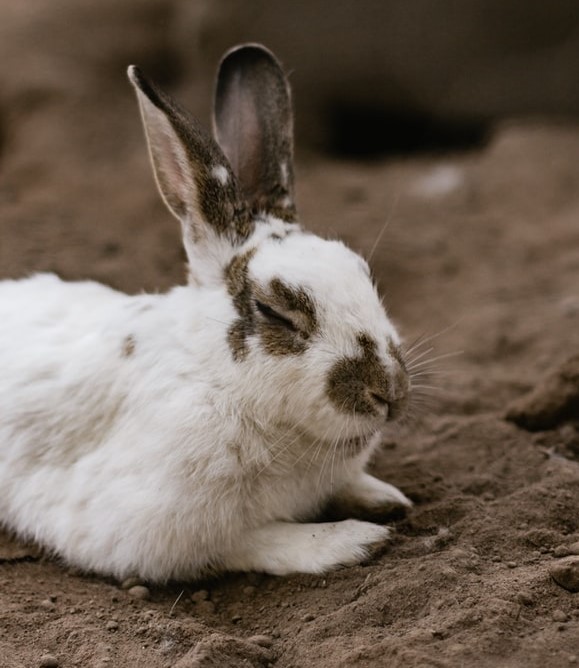
Degenerative Joint Disease is a chronic condition of the joints in rabbits. It occurs when the cartilage or cushion between joints breaks down leading to discomfort, stiffness, and swelling.
The animal may show lameness, a stiff gait, and restricted motion.
It is based on symptoms, physical examination, radiograph, and analysis of the fluid surrounding the joints.
Rabbits with DJD can be treated by limiting exercise and administering prescribed medications. In some cases, surgery is recommended to fix the unstable joints.
NHV Old Timer is a herbal formulation with anti-inflammatory and restorative actions. It helps to alleviate arthritis, muscle, and joint discomfort and improves energy levels
NHV Yucca is a powerful anti-inflammatory with nutritive properties that can be used to support arthritic and joint problems. Yucca also helps boost the appetite and reduces unpleasant odors in urine and feces.
NHV Turmeric has anti-inflammatory and nutritive properties that increase overall vitality while helping to support a variety of health conditions such as arthritis.
NHV PetOmega 3 is a fish oil to enhance overall health and wellbeing. Omega-3 fatty acids are helpful in supporting cardiac health, coat conditions, joints, kidneys, and overall cancer support.
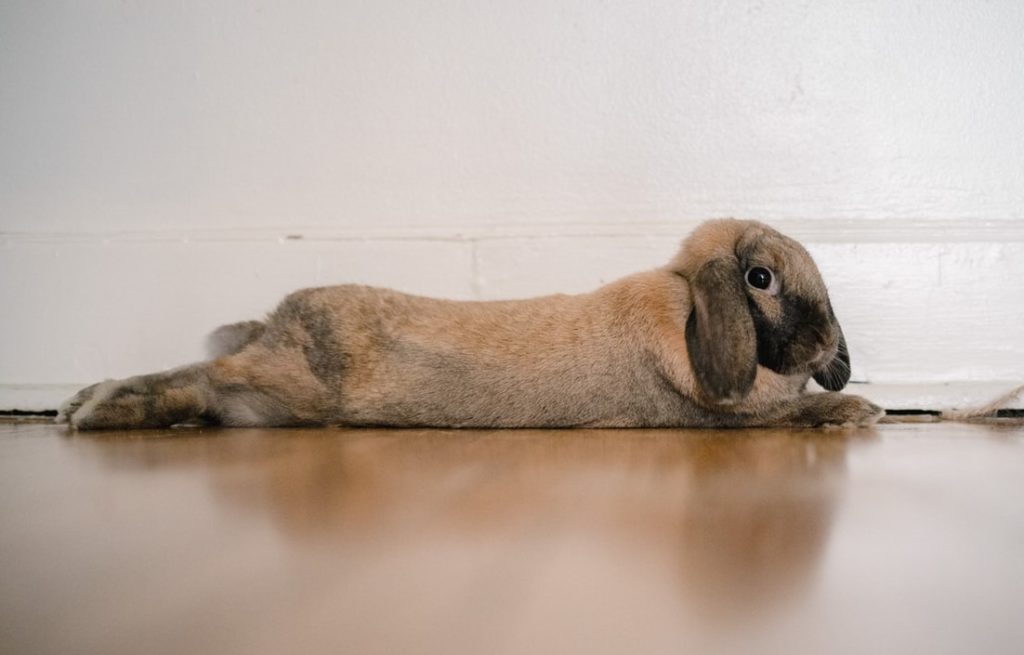
If your rabbit has been diagnosed with any of these diseases and you’re having doubts about the course of treatment, our pet experts are always here to help! Just contact us and we’ll guide you through this difficult time. We’re always here to support you and your furmily!
For general well being and preventive care, we always recommend giving your furry baby Turmeric and Milk Thistle!
liver support

Natural Pet Rabbit Liver Support
buy 2 and save $3
3 month supply for a small to medium size pet
The liver filters anything that your furkiddo puts into their body. So when your pet is sick, toxins may build up in the body and have a tough time getting out. NHV Milk Thistle is a natural supplement for rabbits that helps the liver remove metabolic wastes, and helps to restore immune function as well.


The liver filters anything that your furkiddo puts into their body. So when your pet is sick, toxins may build up in the body and have a tough time getting out. NHV Milk Thistle is a natural supplement for rabbits that helps the liver remove metabolic wastes, and helps to restore immune function as well.

If your pet is battling an illness such as cancer, or kidney disease, the buildup of toxins in their body may be affecting their liver and kidney function. This buildup of toxins often weakens the immune system as well. Milk Thistle contains the active compound silymarin, which helps detoxify the liver and helps support, strengthen and regenerate liver tissue. Research has shown that Milk Thistle may also improve kidney function.
Milk Thistle contains the active compound silymarin which has been used for thousands of years for its numerous health benefits. Studies have shown that silymarin contains effective anti-inflammatory, antioxidant, and detoxifying properties to promote regeneration and repair. Also known as wild artichoke and holy thistle, Milk Thistle is beneficial for removing toxins and metabolic wastes that may accumulate due to illness. Studies are also showing that Milk thistle may have anti-cancer properties due to its high concentration of free radical scavengers.
We know your bunnies are your family. That’s why we made our natural supplements for rabbits 100% natural, easy to administer (liquid formula) and made with only the best organic or wild-crafted, plant-based ingredients. For any questions or concerns about your furkiddo’s liver or kidney health, don’t hesitate to get in touch with an NHV Pet Expert - we’re always here to help!.
Made with the finest, organically grown, or ethically harvested herbs. Made specifically for pets, vet-formulated and vet approved.
Select your pet's weight to determine the correct dose.
For rabbits: 0.5ml (12 drops) twice daily.
How to Administer
Shake well before use. The easiest method is to use the dropper provide and places the drops into your pet’s food or favorite treat. You can also use the dropper and squirt directly into the pet’s mouth.
Some pets can be finicky, if this occurs consider hiding the drops in foods most pet’s love such as mashed banana, strawberry or another favorite treat.
For Best Results
Herbal dietary supplements are beneficial to the health and wellbeing of your pet and are safe for long-term use. Every pet responds to natural herbal supplements differently, therefore it is important to be consistent and administer the product daily. Supplements generally take two to four weeks to take effect, however this will vary from one animal to the next.
Product Storage
All NHV Natural Pet Products are pure herbal extracts and contain no artificial additives, preservatives or coloring. Shelf life after opening is 6 months and must be refrigerated after opening.
Cautions and Contraindications
Do not use Milk Thistle in pregnant or nursing animals. Speak to your vet before using our products. A second visit is recommended if your pet’s condition does not improve, or deteriorates after continued use of the supplements.
All information provided by NHV Natural Pet Products is for educational purposes only.
If your pet is battling an illness such as cancer, or kidney disease, the buildup of toxins in their body may be affecting their liver and kidney function. This buildup of toxins often weakens the immune system as well. Milk Thistle contains the active compound silymarin, which helps detoxify the liver and helps support, strengthen and regenerate liver tissue. Research has shown that Milk Thistle may also improve kidney function.
Milk Thistle contains the active compound silymarin which has been used for thousands of years for its numerous health benefits. Studies have shown that silymarin contains effective anti-inflammatory, antioxidant, and detoxifying properties to promote regeneration and repair. Also known as wild artichoke and holy thistle, Milk Thistle is beneficial for removing toxins and metabolic wastes that may accumulate due to illness. Studies are also showing that Milk thistle may have anti-cancer properties due to its high concentration of free radical scavengers.
We know your bunnies are your family. That’s why we made our natural supplements for rabbits 100% natural, easy to administer (liquid formula) and made with only the best organic or wild-crafted, plant-based ingredients. For any questions or concerns about your furkiddo’s liver or kidney health, don’t hesitate to get in touch with an NHV Pet Expert - we’re always here to help!.
Made with the finest, organically grown, or ethically harvested herbs. Made specifically for pets, vet-formulated and vet approved.
Select your pet's weight to determine the correct dose.
For rabbits: 0.5ml (12 drops) twice daily.
How to Administer
Shake well before use. The easiest method is to use the dropper provide and places the drops into your pet’s food or favorite treat. You can also use the dropper and squirt directly into the pet’s mouth.
Some pets can be finicky, if this occurs consider hiding the drops in foods most pet’s love such as mashed banana, strawberry or another favorite treat.
For Best Results
Herbal dietary supplements are beneficial to the health and wellbeing of your pet and are safe for long-term use. Every pet responds to natural herbal supplements differently, therefore it is important to be consistent and administer the product daily. Supplements generally take two to four weeks to take effect, however this will vary from one animal to the next.
Product Storage
All NHV Natural Pet Products are pure herbal extracts and contain no artificial additives, preservatives or coloring. Shelf life after opening is 6 months and must be refrigerated after opening.
Cautions and Contraindications
Do not use Milk Thistle in pregnant or nursing animals. Speak to your vet before using our products. A second visit is recommended if your pet’s condition does not improve, or deteriorates after continued use of the supplements.
All information provided by NHV Natural Pet Products is for educational purposes only.
overall vitality
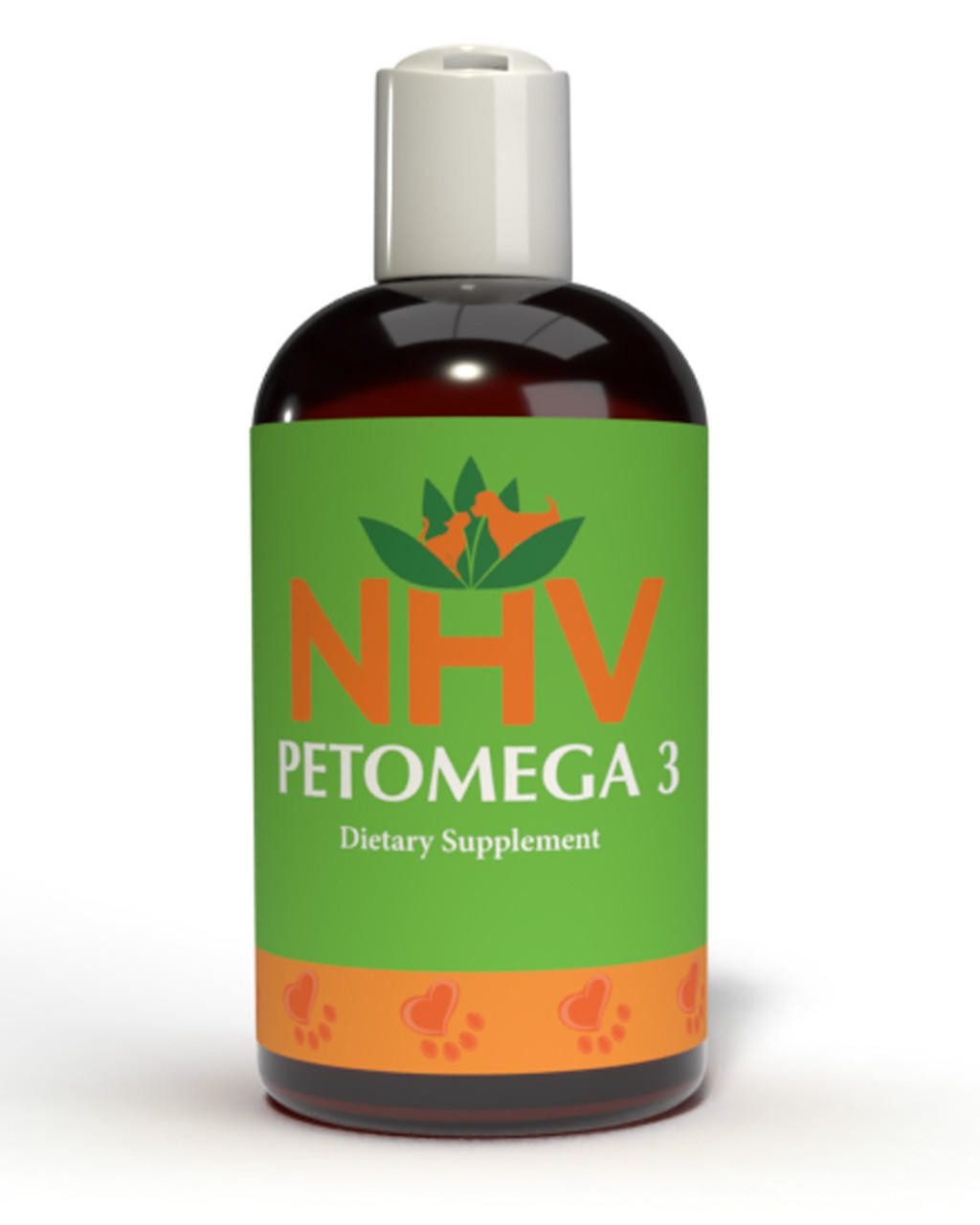
For Overall Health and Well-Being
buy 2 and save $3
An Omega 3 supplement for cats to support their joints, heart, eyes, immune system, and overall organ function.

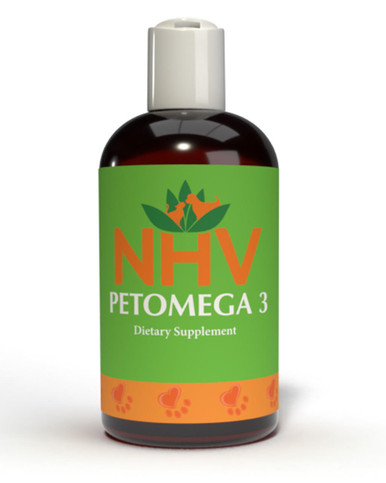
An Omega 3 supplement for cats to support their joints, heart, eyes, immune system, and overall organ function.

Our cat omega 3 supplement is naturally made from the oils of sardines, anchovies, and North Atlantic cod. It’s an excellent source of EPA (Eicosapentaenoic Acid 600mg) and DHA (Docosahexaenoic acid 460mg) essential omega 3 fatty acids. It’s molecularly distilled and cold-pressed to improve the bioavailability
Support your cat with human-grade quality omega 3 fish oil supplements. Many processed pet foods are deficient in this important nutrient. And according to the University of Maryland Medical Center, "It is very important to maintain a balance between omega-3 and omega-6 fatty acids in the diet. A proper balance helps maintain and even improve health."
It’s important for cats to get essential fatty acids through their diet. This omega 3 supplement for cats will help keep them healthy, and even finicky cats actually like to take it.
Benefits of Cat omega 3 supplements:
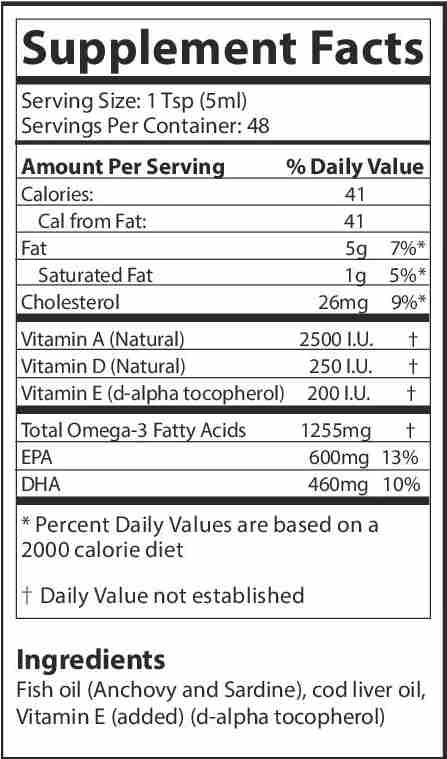
Suggested Dosage: To be taken once per day. Add to food based on weight chart.
Therapeutic Dosage: Double the quantity for maximum period of 4 weeks or follow veterinarian advise.
Pet’s Weight Dosage
0-15 lb = ¼ tsp
15-30 lb = ½ tsp
30-60 lb = 1 tsp
60-90 lb = 1 ½ tsp
How to Administer: Shake well before use. The easiest method is to add the dosage to your pets food. Some pets can be finicky, if this occurs consider hiding the appropriate amount in food most pet’s love such as fish, chicken, yogurt, or a favorite treat. If your pet only eats dry food then soak kibbles at feeding time.
For Best Results
Dietary supplements are beneficial to the health and well-being of your pet and are safe for long-term use. Every pet responds to natural supplements differently, therefore it is important to be consistent and administer the product daily. Supplements generally take two to four weeks to take effect, however this will vary from one animal to the next.
Product Storage
All NHV Natural Pet Products contain no artificial additives, preservatives or coloring. Shelf life after opening is 6 months and must be refrigerated after opening.
Cautions and Contraindications
Avoid During Pregnancy.
Our cat omega 3 supplement is naturally made from the oils of sardines, anchovies, and North Atlantic cod. It’s an excellent source of EPA (Eicosapentaenoic Acid 600mg) and DHA (Docosahexaenoic acid 460mg) essential omega 3 fatty acids. It’s molecularly distilled and cold-pressed to improve the bioavailability
Support your cat with human-grade quality omega 3 fish oil supplements. Many processed pet foods are deficient in this important nutrient. And according to the University of Maryland Medical Center, "It is very important to maintain a balance between omega-3 and omega-6 fatty acids in the diet. A proper balance helps maintain and even improve health."
It’s important for cats to get essential fatty acids through their diet. This omega 3 supplement for cats will help keep them healthy, and even finicky cats actually like to take it.
Benefits of Cat omega 3 supplements:

Suggested Dosage: To be taken once per day. Add to food based on weight chart.
Therapeutic Dosage: Double the quantity for maximum period of 4 weeks or follow veterinarian advise.
Pet’s Weight Dosage
0-15 lb = ¼ tsp
15-30 lb = ½ tsp
30-60 lb = 1 tsp
60-90 lb = 1 ½ tsp
How to Administer: Shake well before use. The easiest method is to add the dosage to your pets food. Some pets can be finicky, if this occurs consider hiding the appropriate amount in food most pet’s love such as fish, chicken, yogurt, or a favorite treat. If your pet only eats dry food then soak kibbles at feeding time.
For Best Results
Dietary supplements are beneficial to the health and well-being of your pet and are safe for long-term use. Every pet responds to natural supplements differently, therefore it is important to be consistent and administer the product daily. Supplements generally take two to four weeks to take effect, however this will vary from one animal to the next.
Product Storage
All NHV Natural Pet Products contain no artificial additives, preservatives or coloring. Shelf life after opening is 6 months and must be refrigerated after opening.
Cautions and Contraindications
Avoid During Pregnancy.
discomfort support

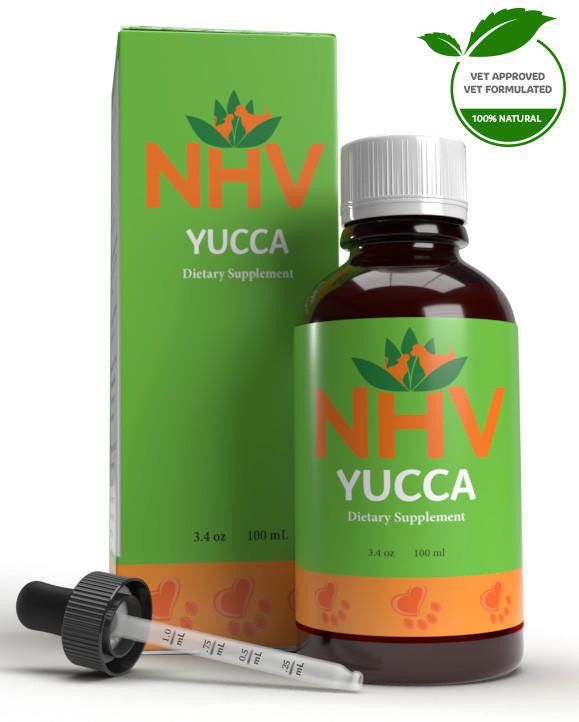
Support for Discomfort and Appetite Stimulant
buy 2 and save $3
3 month supply for a small to medium size
NHV Yucca is used for cats as a supplement to provide nutrients, and may be helpful for discomfort, inflammation, and to increase or balance the appetite.


NHV Yucca is used for cats as a supplement to provide nutrients, and may be helpful for discomfort, inflammation, and to increase or balance the appetite.

Yucca is used in cat food as well as food for other animals around the world. Its root is a highly nutritious herb that’s rich in vitamin C, beta-carotene, B vitamins, magnesium, iron, calcium, manganese, protein, niacin, and phosphorus.
Yucca contains two very beneficial compounds: sarsasapogenin and smilagenin. These two compounds work on the mucous membranes of the small intestine. These compounds help with the penetration and absorption of minerals and vitamins. Sarsasapogenin and smilagenin are known as steroidal saponins (phytosterols) which act as precursors to corticosteroids produced naturally by the body.
Steroidal saponins support the immune function of the body while stimulating and supporting the production of its own corticosteroids and corticosteroid–related hormones. Due to this action, studies conducted on Yucca have shown that it may be beneficial and effective for discomfort relief and inflammation in conditions such as arthritis. Yucca for cats may also be a natural appetite stimulant and may also help reduce the production of urease, which contributes to the unpleasant odors of urine and feces in some cats.
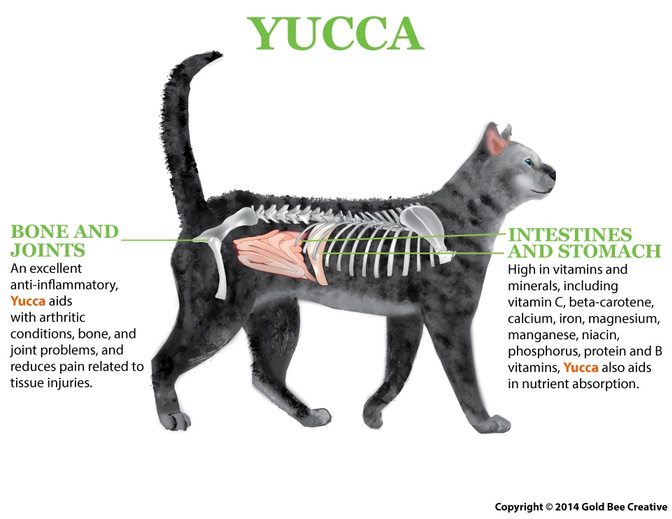
Yucca - Commonly used for supporting arthritis, as an anti-inflammatory, nutritive, antitumor, and digestive supplement.
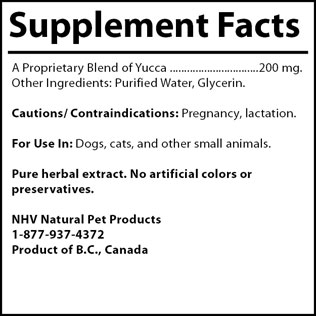
Select your pet's weight to determine the correct dose.
To be taken twice daily. Determine your pet’s weight and then use the easy chart below to determine the correct dose. This is the minimum dosage.
Pet's Weight Dosage
0 - 15 lb = 0.5 ml
16 - 30 lb = 1.0 ml
31 - 45 lb = 1.5 ml
46 - 60 lb = 2.0 ml
61 - 75 lb = 2.5 ml
Over 75 lb = 3.0 ml
How to Administer: Shake well before use. The easiest method is to use the dropper provided and place the drops into your pet’s food or favorite treat. You can also use the dropper and squirt directly into the pet’s mouth. Some pets can be finicky, if this occurs consider hiding the drops in foods most pet’s love such as fish, chicken, yogurt, or a favorite treat. If your pet only eats dry food then soak a few kibbles at feeding time.
For Best Results: Herbal dietary supplements are beneficial to the health and well-being of your pet and are safe for long-term use. Every pet responds to natural herbal supplements differently, therefore it is important to be consistent and administer the product daily. Supplements generally take two to four weeks to take effect, however this will vary from one animal to the next.
Product Storage:
All NHV Natural Pet Products are pure herbal extracts and contain no artificial additives, preservatives or coloring. Shelf life after opening is 6 months and must be refrigerated after opening.
Cautions and Contraindications
Do not use Yucca in pregnant or nursing animals.
Speak to your vet before using our products. A second visit is recommended if your pet’s condition does not improve, or deteriorates after continued use of the supplements. All information provided by NHV Natural Pet Products is for educational purposes only.
Yucca is used in cat food as well as food for other animals around the world. Its root is a highly nutritious herb that’s rich in vitamin C, beta-carotene, B vitamins, magnesium, iron, calcium, manganese, protein, niacin, and phosphorus.
Yucca contains two very beneficial compounds: sarsasapogenin and smilagenin. These two compounds work on the mucous membranes of the small intestine. These compounds help with the penetration and absorption of minerals and vitamins. Sarsasapogenin and smilagenin are known as steroidal saponins (phytosterols) which act as precursors to corticosteroids produced naturally by the body.
Steroidal saponins support the immune function of the body while stimulating and supporting the production of its own corticosteroids and corticosteroid–related hormones. Due to this action, studies conducted on Yucca have shown that it may be beneficial and effective for discomfort relief and inflammation in conditions such as arthritis. Yucca for cats may also be a natural appetite stimulant and may also help reduce the production of urease, which contributes to the unpleasant odors of urine and feces in some cats.

Yucca - Commonly used for supporting arthritis, as an anti-inflammatory, nutritive, antitumor, and digestive supplement.

Select your pet's weight to determine the correct dose.
To be taken twice daily. Determine your pet’s weight and then use the easy chart below to determine the correct dose. This is the minimum dosage.
Pet's Weight Dosage
0 - 15 lb = 0.5 ml
16 - 30 lb = 1.0 ml
31 - 45 lb = 1.5 ml
46 - 60 lb = 2.0 ml
61 - 75 lb = 2.5 ml
Over 75 lb = 3.0 ml
How to Administer: Shake well before use. The easiest method is to use the dropper provided and place the drops into your pet’s food or favorite treat. You can also use the dropper and squirt directly into the pet’s mouth. Some pets can be finicky, if this occurs consider hiding the drops in foods most pet’s love such as fish, chicken, yogurt, or a favorite treat. If your pet only eats dry food then soak a few kibbles at feeding time.
For Best Results: Herbal dietary supplements are beneficial to the health and well-being of your pet and are safe for long-term use. Every pet responds to natural herbal supplements differently, therefore it is important to be consistent and administer the product daily. Supplements generally take two to four weeks to take effect, however this will vary from one animal to the next.
Product Storage:
All NHV Natural Pet Products are pure herbal extracts and contain no artificial additives, preservatives or coloring. Shelf life after opening is 6 months and must be refrigerated after opening.
Cautions and Contraindications
Do not use Yucca in pregnant or nursing animals.
Speak to your vet before using our products. A second visit is recommended if your pet’s condition does not improve, or deteriorates after continued use of the supplements. All information provided by NHV Natural Pet Products is for educational purposes only.
Published: March 13, 2020